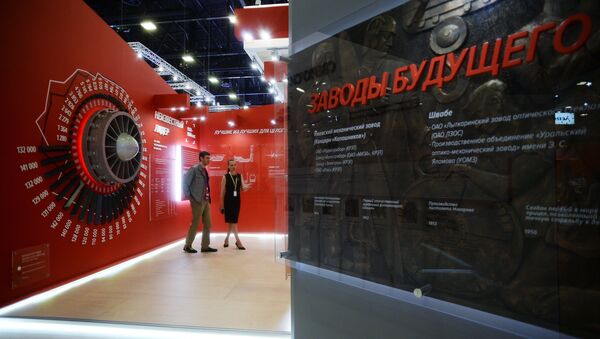On May 25 Rostec Corporation officially launched a special agency responsible for exporting and promoting domestic hi-tech IT products abroad, with the concept of digital sovereignty reasonably being a real titbit for the world of excessive interdependence.
RITE (Russian IT Export) will focus on the B2G market segment seeking to upgrade countries on the national level. The organization, which has been actually active for two months, uses the veneer of credibility of the worldwide famous Rostec brand, its offices in over 50 countries and its well-established strategic connections with governments.
Sputnik sat down with RITE CEO Egor Ivanov who outlined the four vectors of export: digital sovereignty, electronic government, smart cities and cross-platform horizontal decisions.
In E-government and smart cities segments, Russia will use the expertise of Moscow, Saint Petersburg and Kazan, in particular, in successfully abandoning the use of Oracle-based systems, which has spurred interest abroad; the country is currently negotiating tenders in some 100 Indian cities seeking a "smart" uptick.
But the cornerstone of the export seems to be the transfer of Russian solutions, experience and practical decisions in protecting countries' digital sovereignty.
"There are hackers, and there is a defense against them," Ivanov said hinting at notorious cyber-attacks.
But the issue extends far beyond fighting off such crimes by antiviruses.
"When we speak about digital sovereignty, we mean the building of national systems which ensure effective government, convenience for citizens and, importantly, trusted execution environment so that the platform on which all those decisions are based is free from ‘backdoors' and the monopoly of one foreign country, which would sooner or later lead to hardcore negotiating," he explained.
He underscored that Russia offers a unique key to sovereignty because it does not try to make the customer country dependent on Moscow.
"Our unique advantage resides in the fact that platform is not ours — it is created by using open-source [software]. The customer will completely control the platform," Ivanov stressed speaking to Sputnik on the sidelines of the CIPR conference.
RITE analyzes the customer country's demands and attitude to Russia, and forms a package solution, at the same time helping small businesses join the market. It provides Russian producers with Rostec's net of offices thus bringing them in direct contact with the client.
At the moment, the key target markets of RITE are South-East Asia, Latin America, the Middle East, Africa and the EURASEC countries, i.e. the regions with which Russia has established good political, economic and trade relations.
"We are ready to offer special contract terms tailored to each of our partners' needs. We plan that most often RITE will operate as a consortium uniting various solutions and companies. We are also prepared for various collaboration formats, we are ready to sign contracts in accordance with financial and legal requirements to avoid inconveniences for our partners," Ivanov specified.
"First of all, we are ready to offer a deeply customized product to our international partners. Our products will be competitive price-wise thanks to the relatively low cost of Russian IT solutions and a low exchange rate of the national currency," Vasiliy Brovko, Rostec's Director for Special Commissions, noted.
He explained that the creation of the umbrella company resolved the deadlock of self-sufficient minor companies being unable to enter the international market because their transaction costs exceed the added value.
Earlier in the week, Russia's Communications Minister told Sputnik that Moscow continues to promote the idea of national governments' inclusion in Internet regulation and their pursuance of digital sovereignty.
The CIPR is the first IT conference in Russia which provides a platform for dialogue between industry and defense sector, IT professionals, and venture investors. It takes place on May 23-26 in the innovation-oriented town of Innopolis in the Republic of Tatarstan and is supported by Rostec, a Russian corporation established in 2007 to facilitate the development, production and export of high-tech industrial products designed for civilian and military applications. It comprises more than 700 organizations.




